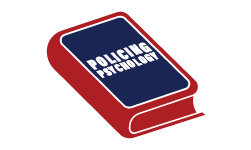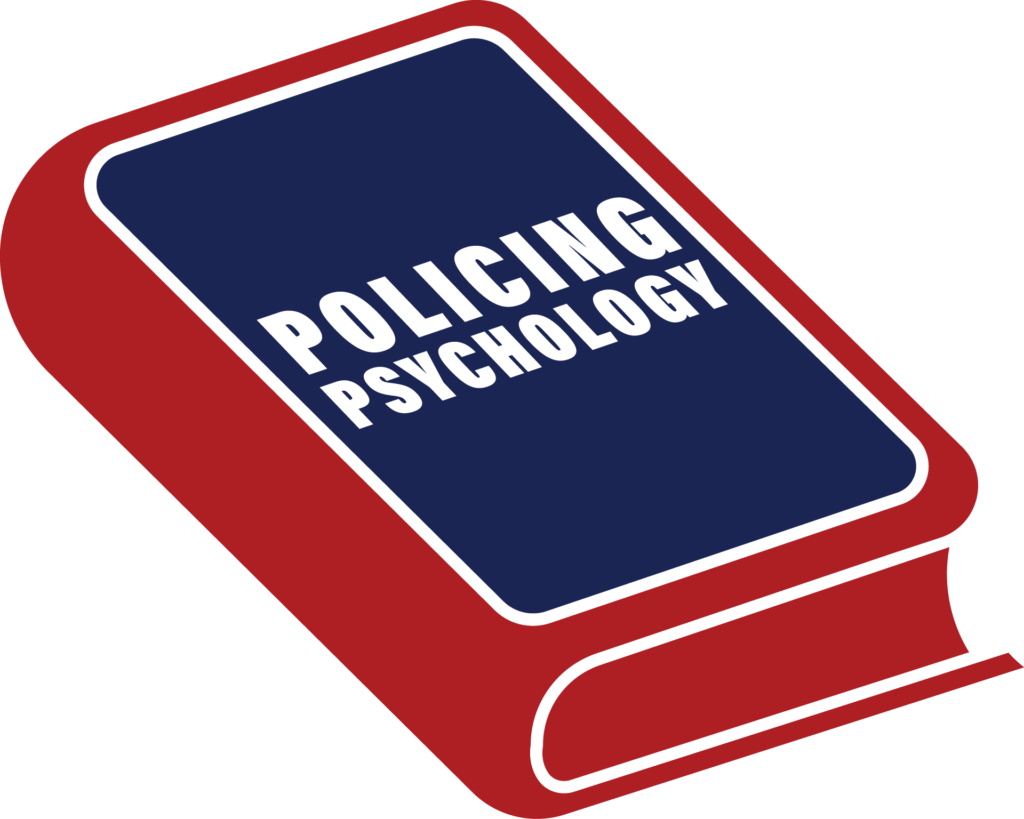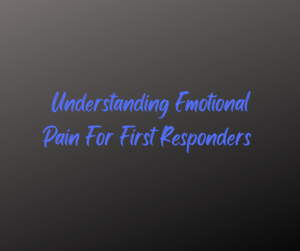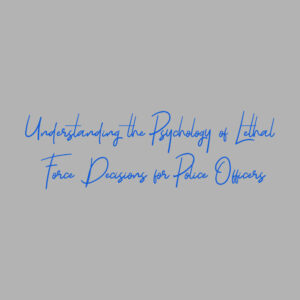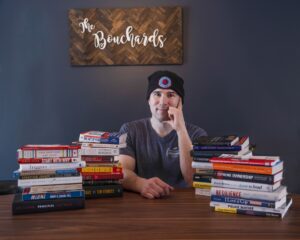Blogs
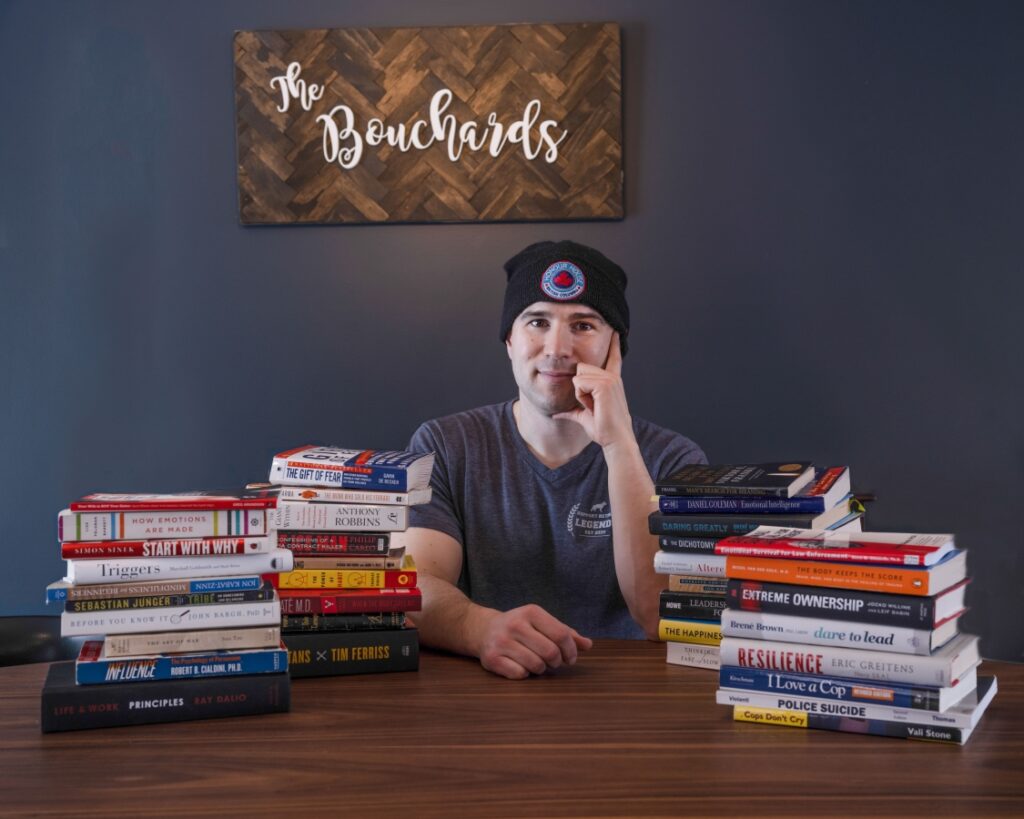
I WAS NOT READY FOR THE PSYCHOLOGICAL CHALLENGES OF POLICE WORK
When I started my career as a police officer in 2007, I quickly realized that I was not prepared for the psychological challenges of a career in policing. No amount of marching around a drill square or practicing straight arm bar take downs had prepared me for the psychological impacts of police work. I wasn’t ready for the emotional pain that I carried from the tragic death and suffering that I witnessed. I wasn’t ready for the realities of making life and death decisions. I was not ready to understand the psychology involved with suicides. I didn’t have healthy coping strategies to manage these challenges.
I suffered in silence for years. I didn’t understand that I didn’t need to suffer for so long. I have spent the past ten years learning how to get healthy and now I have spent the past several years passing that knowledge on to other cops. Now my plan is to share these resources with more people through my website, and then through my upcoming book. Here are a few of the topics that I will be covering in the next few months.
MANAGING EMOTIONAL PAIN FOR COPS
Within weeks of starting my career, I attended the scene of a fatal car crash where two young women had died. I also had to tell the family of one of the women that she had died. I watched their hearts break. I felt some of their pain. It stayed with me. I had no idea at the time that this pain would last with me for many years. I couldn’t even think about it without crying and I certainly couldn’t talk about it. But I can now. I had to learn how to let go of that pain. I had to learn for myself how to manage the emotional pain of police work and now that is one of the lessons that I will share.
UNDERSTANDING LETHAL FORCE DECISIONS
I was also unprepared for the psychological challenges of lethal force decisions. I have been put into several positions where people with guns and imitation firearms tried to get me to shoot them. Those experiences severely affected me. They led to me having many years of nightmares where I would constantly relive needing to shoot someone at work. I would wake up in a panic, feeling those exact same terrible feelings that I had felt during the call. Nobody taught me about this in training but eventually I found books that helped me to understand it. I learned that many others had experienced similar nightmares before me, and I was able to process those memories, which allowed me to leave them in my past.
IMPACTS OF SUICIDE
I have experienced the loss of a loved one to suicide. I know that it is a terrible thing for anyone to experience. I wish that I had understood it better, so that I might have been able to see some warning signs. The policing profession, like many other first responder communities, has had a problem with suicide for decades. However, I believe that with better psychological education, we can reduce police officer suicides. Every police officer who dies matters. Preventing these deaths by suicide is crucial. Psychological education is one of the best forms of officer safety training that we can implement.
STOPPING MENTAL HEALTH STIGMA
There is a strong stigma around mental health within the policing profession. I understand it because I have personally felt it. I judged myself more harshly than anyone else judged me when I suffered a psychological injury. I also wasn’t willing to accept effective treatment options for my PTSD diagnosis because of the stigma that I felt about it. So, I have spent the past few years writing a book to educate other police officers about the lessons that I needed to know. It is my way of sharing the lessons that I learned the hard way, the lessons that I needed to know at the start of my career. I’ll describe what I learned about my self-perception and my mental models. I’ll describe my dysfunctional view that I was meant to be robocop, without any feelings. How I judged myself for being human and having emotions and how I was able to change my thoughts.
POLICE CULTURE
I wasn’t raised into a policing family and I didn’t really understand policing culture. I went on to study policing culture while completing my Master’s degree. It is important that we understand the history of policing culture and the direction of policing culture for the future. The good and the bad. Overall, there are many great things in policing culture, but there are also some aspects that we need to leave in our past. I will talk about policing culture, as an aggregation of policing sub-cultures, along with how we can continue to improve policing culture. Culture is passed on from the more senior members of a group to the newer members, which is what I’ll be doing with this website.
PHYSICAL IMPACTS
Like most shift workers, law enforcement professionals are required to work shift work pattern which work against our natural biology. Working all night and trying to sleep during the day disrupts our lives and our hormones. However, our training programs fail to provide us with the necessary education about how to mitigate these impacts, even though sleep and mental health have a very strong connection. I will share with you the lesson that I have learned from sleep experts that have helped me to manage shift work for years.
MY UPCOMING BOOK – SETTING MY SIGHTS ON STIGMA
I started writing a book about the lessons that I had to learn the hard way. I have been writing the book that I needed as a new police officer, but it didn’t exist. I will share some of my journaling experience. The thoughts that I wrote while I was suffering from my psychological injury. I talk about what is like to have anxiety attacks, nightmares, rage and alcohol abuse. I was unable to work and even failed my first attempt at a return-to-work psychological evaluation. Even more importantly, I will share the lessons that I learned that helped me to heal, so that they can help you as well.
RESOURCES
I will be providing short summaries of these helpful books and journal articles on this website and on a YouTube channel that I am creating. These are the same books that I have handed to countless friends and coworkers, within my organizations and while I worked on our Emergency Response Team (ERT). I will help to summarize the information contained in these books, so that you can have an overview of how they can help you, with a goal of better preparing you for the psychological challenges of a career in law enforcement.
FIRST RESOURCE
The first resource that I will reference is a book summary that I have written of Emotional Survival for Law Enforcement, which was written by Dr. Kevin Gilmartin. He served a long career in law enforcement before receiving his PhD in psychology. Reading this book has been one of the most impactful things in my career and I have read it many times. I have personally passed on copies of this book to approximately 50 cops in my career. If I could hand you my copy right now too, I would. Click here to read a summary of Dr. Gilmartin’s book.
LET’S BUILD A COMMUNITY TOGETHER
I want is to help build a community where police officers receive the knowledge that they need and deserve, so that they can serve the public, while also taking care of themselves and their families. I wish that we received more of this education in our training but we don’t yet. So, I’m going to help share it with you through this website. I am asking you to join me in building a community where we can access educational resources that will build our capacity to be better law enforcement officers, and better people.
WHAT TO EXPECT
I will keep posting free content on this website. I will write blog posts on topics related to helping build up law enforcement personnel through education. I will also reference many books and peer-reviewed journal articles to support that education. I will create links, where you can access some of the articles for free and where you can buy some of the books for yourself. Reading the summaries are a great starting point, but they are not meant to replace the books. My hope is that they will help to show you why reading these books and articles will help you, as much as they have helped me.
Thank you for joining me as we build this community together! Stay safe!
Mark Bouchard
